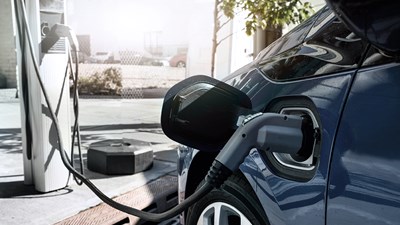Athlon understand that the transition to electric can be a scary one which is why we sought to take a deeper dive into how to ease you into EV. Our partners at Green Fleet conducted a survey on Athlon UKs behalf, examining the way in which relevant personnel such as fleet managers have found their transition to EV so far allowing us to offer a solution so you won’t run into any of the same issues.
The transition to electric fleets is well underway, with no time like the present to start considering your future fleet. EV adoption has rapidly increased with fleets as the driving force according to Go Ultra Low.
There is little doubt that the increase in EV sales is largely due to the decision to ban ICE vehicle sales from 2035 to allow us to reach net zero sooner. Further advancing the EV movement would be the roll out Low Emission Zones across UK cities making ICE vehicles less appealing. Not to mention the rapid growth in manufacturers offering a range of EV and low emission vehicles more than capable of fulfilling the same tasks as opposing ICE vans and cars.
86% of our participants reported they were actively looking to introduce EVs into their fleet, with our excellent consultancy service your future fleet might not seem that far away!
Fleet policies act as a foundation to your fleet meaning that in order to support the shift to EV changes and additions must be made in terms of EV fleet policy, vehicle procurement and recharging infrastructure etc.
87% of our participants are key decisions makers and influencers with over half having a fleet size up to 100.
Did you know that we are beginning to see more pure battery electric vehicles (BEVs) outselling diesel vehicles on occasion!
In September 2023 the Government announced changes to it's road to zero plan, with the switch deadline moving from 2030 to 2035, giving businesses an extra five years to transition to electric. Further advancing the EV movement would be the roll out Low Emission Zones across UK cities making ICE vehicles less appealing. Not to mention the rapid growth in manufacturers offering a range of EV and low emission vehicles more than capable of fulfilling the same tasks as opposing ICE vans and cars.
86% of our participants reported they were actively looking to introduce EVs into their fleet, with our excellent consultancy service your future fleet might not seem that far away!
Fleet policies act as a foundation to your fleet meaning that in order to support the shift to EV changes and additions must be made in terms of EV fleet policy, vehicle procurement and recharging infrastructure etc.
87% of our participants are key decisions makers and influencers with over half having a fleet size up to 100.
Current and Future Electric Vehicle Policy
Whilst some might think that introducing EVs into your fleet is not as simple as just buying the vehicle. There might need to be wider organisational and cultural challenges that first need to be addressed to accommodate the adoption. It is important to embed clear guidelines on procurement and continued operations into an EV policy will ease the transition to a zero emission fleet.
Over half of our respondents reported that they had already revised their company fleet policy to include PHEVs, BEVs or both.

What is a fleet policy?
Fleet policies work to define things like vehicle eligibility, vehicle choice, grade, processes for ordering, maintaining and also returning of the vehicle all while outlining the drivers responsibilities and taxation. Furthermore it will work to depict whether private mileage is allowed and processes for mileage reporting and reimbursement of fuel costs.

What to consider when integrating EVs into your Fleet Policy?
Although the foundation of your fleet policy will remain very much the same, it is important to be inclusive of the following factors:
- Vehicle Banding should be adjusted accordingly to make EVs more accessible i.e. banding based on total cost of ownership
- Start assisting in the updated ICE 2035 phase out by placing an emission CAP on ICE and PHEVs
- Combat the benefit in kind (BIK) taxation by introducing an EV Salary Sacrifice Scheme and encourage EV adoption
- Charging Reimbursement – having in place guidelines and procedures for drivers who are charging their vehicle as you do for ICE drivers.
- Don’t exclude PHEVs from your policy – while the environmental benefits of BEVs are greater than that of PHEVs they could still have a home in your fleet!
- Ensure your procurement policy allows the purchase of alternate fuelled vehicles
- Offer free workplace charging to encourage the uptake
- Begin replacing old ICE vehicles with BEVs and PHEVs to help support the race to zero!
Is EV Salary Sacrifice for you?
There has never been a better time to own a full EV with many tax incentives and bring of cash takers back into the company car scheme. Not forgetting the massive environmental and CSR benefit that come hand in hand with EVs. With our dedicated specialist team we look forward to being able to offer you our own Salary Sacrifice Service to help get you and your fleet closer to carbon neutral!

What are our respondents doing in their journey to EV?
We discovered that many of our respondents were leaning towards the purchasing route:
- 68% have electric vehicles within their fleet.
- 86% actively looking at EVs as a viable option
- 39% looking within their current or next procurement cycle
- 51% believe leasing is the most likely outcome of their EV procurement, with a further 35% expecting a mixture of purchase and lease.
Over on the pro leasing team we discovered why so many key fleet personnel are swaying towards this route:
- 51% of our respondents are leaning towards leasing due to the high upfront cost of a full battery electric.
- The total cost of ownership (TCO) when concerning EVs is already cheaper than ICE in some instances.
- Through leasing you can mitigate initial Capex costs and move the expenses into an Opex model with the on the road saving fund.
- Not only are there financial benefits to leasing but also technological ones; leasing enables you to stay in latest vehicle allowing you to keep up to date with expanding vehicle choices and vehicle enhancements to ensure your EV is best for the job!
Fast forward
Do you like to read more, are you curious about our related solutions and cases, or would you like to find out what Athlon can do for you?
Other challenges



Rethink your mobility when it comes to the trends we are facing.
All challenges

